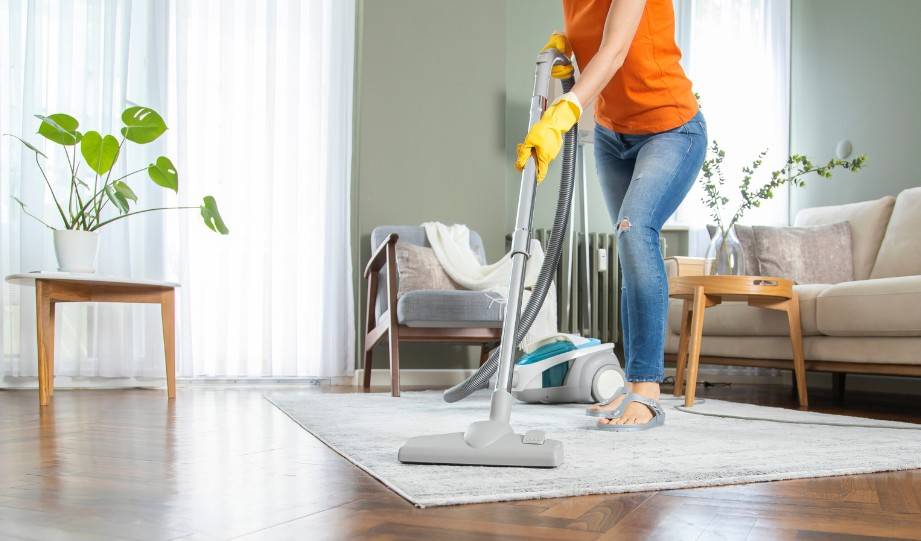Living a zero-waste lifestyle doesn’t have to be hard if you follow these tips whenever you grab that broom and spray bottle in your house.

Living a zero-waste lifestyle seems easy and doable, but you will realize that it’s a lot harder than you think once you are in that zone.
Why? We've lived long enough to know that waste is everywhere.
It is the water bottle we buy at the convenience store, the food packages we bring home, the plastic wraps that come with our groceries, and many more.
We are living in a world where waste keeps on increasing by the minute. But the good thing about this generation is that we are now more aware of how we can lessen the amount of garbage around us.
You can even apply zero-waste principles in cleaning. Here's how you can do that.
1. Make Your Own All-Purpose Cleaning Solution
Filling your cupboard with endless plastic bottles and jugs of household cleaning products bought from the store is unnecessary. The way to go is to DIY an all-purpose cleaning solution that's not only safe for you and your family's health but is also friendly for the environment.
Pour a 1:1 water to vinegar ratio in an old spray bottle. The magic of DIY and repurposing old containers can amaze you. As such, you will no longer have to buy cleaning products in a bottle every time you visit the grocery.
2. Reuse Old Items for Cleaning
The age-old principle of reusing old items has always been a go-to technique when you want to lessen your ecological footprint.
It is also applicable when it comes to cleaning. For example, you can use old kitchen sponges to clean bathrooms. Just be sure to keep them where they are being used because you don't want to make the mistake of using the sponge that's meant for the toilet in your kitchen.
3. Invest in Compostable Products
Go all in for the environment by investing in compostable products like the ones found in our Green Store instead of chemical-laden stuff that pollutes the environment.
One way you can do this is switching from your regular laundry detergent to soap nuts. Other kitchen items that you can use in your cleaning solution are cornstarch, vinegar, salt, lemon, and coffee grounds.
Remember, there are environmental waste that are not seen by the naked eye. These are the pollutants that come with the chemicals in our products that are harmful to the planet.
4. Ditch Single-Use Items
Single-use items have contributed to the slow death of the planet. And we are all guilty of using such items at one point or another in our lives. It’s about time we bring the Earth back to life by using durable, reusable cleaning items.
You don’t have to keep buying new sponges and scrubs when you can turn to reusable cleaning gear that you can make yourself. Just search around the house, look for items that you can reuse, and be creative.
5. Avoid More Clutter at Home
Here's what Maid Sailors Home Cleaning Services NYC always tell their clients who want to practice zero-waste cleaning: Try being more mindful about the things you purchase.
Do not add any more clutter at home. Evaluate the things you need, and recognize which ones you can DIY at home.
There is nothing wrong about putting back an item into their respective aisles. More so when you realize that you do not need another waste contribution in your house.
Think about this: Once you are done with that one item, how will you dispose of it?
This should become a ritual for you when you go to the grocery store.
6. Buy Durable Cleaning Tools
If you don’t believe that things can last forever, try thinking of that plastic bottle you just bought from the store.
You can help the planet survive for centuries more by reusing that water bottle instead. The same principle applies when you buy cleaning tools.
When you pick the correct item, durable cleaning tools that can last a lifetime are readily available for you. You can help the planet thrive by using just one set of sturdy tools instead of buying new ones every month.
Conclusion
If we switch to more eco-friendly cleaning methods, then we have a standing chance of making this a sustainable planet to live in.
We can start with the zero-waste cleaning tips listed above.
Remember: It is our duty and responsibility to keep the environment around us clean and healthy, just like how we want our homes to be.










Pingback: How To Use A Citric Acid Cleaner On Household Items - GreenCitizen